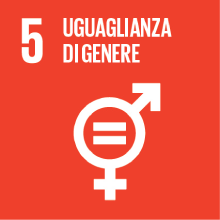18TH CENTURY STUDIES
- Anno accademico
- 2019/2020 Programmi anni precedenti
- Titolo corso in inglese
- 18TH CENTURY STUDIES
- Codice insegnamento
- LMJ370 (AF:309489 AR:166602)
- Lingua di insegnamento
- Inglese
- Modalità
- In presenza
- Crediti formativi universitari
- 12
- Livello laurea
- Laurea magistrale (DM270)
- Settore scientifico disciplinare
- L-LIN/10
- Periodo
- II Semestre
- Anno corso
- 1
- Sede
- VENEZIA
Inquadramento dell'insegnamento nel percorso del corso di studio
1) to increase the knowledge and comprehension of English literature at higher (M.A.) level, through the study of its development in the eighteenth century;
2) to acquire a better command of theoretical approaches, hermeneutical tools for textual analysis and close reading; along with acquiring the competence to contextualise them in the historical and literary background;
3) to be able to comprehend English culture (specifically in the eighteenth century) through a better understanding of its relevant texts and documents. Students will learn the history of English literature both from a cultural and an aesthetic viewpoint, as well as in its relation with the political and social history of England and Great Britain. They will apply their hermeneutic abilities to the comprehension of complex literary texts, their relation with the cultural and socio-political background, their rhetorical strategies and aesthetic qualities. They will be able to produce a discussion of complex texts and connect them to the historical framework to which they belong.
The module will be taught entirely in English.
Risultati di apprendimento attesi
1) to conduct an autonomous bibliographic search in English;
2) to provide critical commentaries, short essays, and a final thesis in English, using the critical-hermeneutical knowledge acquired in the module, also through a personal reading of texts;
3) to enter a dialogue with the critical state of art on texts and themes, and debate one's positions in public;
4) to translate literary text and critical analyses into Italian with a good knowledge of the theories and varieties of translation;
5) to operate in various intercultural contexts.
In the Joint Degree / Double Degree course the acquired competence with be implemented in an interaction with the students, and in the contexts, of the universities participating in the consortium.
Prerequisiti
A general knowledge of history and cultural history in the seventeenth and eigheenth centuries will be helpful.
An excellent command of the English language (C1) will be needed in order to understand and comment on complex texts.
Contenuti
The module will focus on the main issues discussed in eighteenth-century English literature, with special regard to the themes of the development of a rational thought based on the empirical-critical study of the world and self by the intellect; the rise of a philosophy and culture of the passions felt through the senses (sentiments); the development of theories of sympathy and fellow-feeling; and the urge to, and wish for, happiness understood as central in man's psychological and social nature; the role of fear in political and aesthetic thoeries of the human mind.
Those themes and issues will be analysed, discussed and commented on, by reading and interpreting as well as some chosen literary texts (as in the list below).
Testi di riferimento
0. Samuel Johnson, "Rasselas, Prince of Abissinia" (Oxford Classics) [this not a compulsory reading]
1. Laurence Sterne, "A Sentimental Journey" (Broadview Press)
2. Henry Mackenzie, "The Man of Feeling" (Broadview Press)
3. Horace Walpole, "The Castle of Otranto" (Oxford Classics)
4. Selected passages from Edmund Burke, "A Philosophical Enquiry into the Origin of Our Ideas of the Sublime and Beautiful" (online: https://archive.org/details/enqphilosophical00burkrich ) ) (see moodle)
Criticism:
- for the eighteenth-century context, as far as its main themes and issues are concerned: Roy Porter, "Enlightenment" (Penguin; chapters: "Introduction", 5, 6, 7, 10-14, 19; Ca' Foscari BALI-Studi Europei e Postcoloniali: INGLESE E X4 POR/Enl)
- for the sentimental themes in the eighteenth century:
R.F. Brissenden, "Virtue in Distress: Studies in the Novel of Sentiment from Richardson to Sade" (Macmillan; chapters 1 through 3; Ca' Foscari BALI-Studi Europei e Postcoloniali: INGLESE E X4 BRIS/Vir)**accessible online also here (through free subscription): https://archive.org/details/virtueindistress0000bris/page/n1/mode/2up
and G.J. Barker-Benfield, "The Culture of Sensibility: Sex and Society in Eighteenth-Century Britain", chapters 1 and 3 (Chicago U.P.; CA' Foscari BAUM 305.30941 BARKG ) : those students who couldn't read this book because they couldn't access the library during the covid19 emergency may read the chapter "Sympathy and the Production of Society" from John Mullan, "Sentiment and Sociability" (Oxford University Press; see the moodle of this module).
Further critical essays on specific novels will be communicated by the teacher during the semester, and can found on the moodle platform of the module.
Non attending students will have to read, in addition to the above:
- the Introductions to the 3 novels in the programme, as well as the materials provided in the appendices in the Broadview editions of the novels n. 2 and 3.
- Karin Kukkonen, "The Dramatic Passages of The Castle of Otranto", in "A Prehistory of Cognitive Poetics", Oxford U.P.; Ca' Foscari BALI-Studi Europei e Postcoloniali: INGLESE EF KUK/Pre)
- Ann Jessie Van Sant, "Eighteenth-century Sensibility and the Novel" (Cambridge U.P.; Ca' Foscari BALI-Studi Europei e Postcoloniali: INGLESE E X4 VAN/Eig)
those students who couldn't read these two last items in the list because of restrictions due to the Covid19 emergency are requested to contact the teacher for alternative readings.
Modalità di verifica dell'apprendimento
The test will be made of questions with open answers and will be divided into three parts:
A. General themes and topics (history of 18th-century literature and culture): students will choose 3 out of 6 questions (answers will have to be about 10-15 lines long) (Aim 1)
B. A short essay (one sheet long) based on one of the authors/themes discussed in class; students will choose 1 out of 2 questions (Aim 2)
C. A commentary (one sheet long) on a passage selected from one of the texts in the programme, meant to discuss the rhetorical (as well as poetic, narrative, etc.) strategies, the themes, the connections to the historical background in the text (Aim 3)
Students will be allowed to use a monlingual English dictionary. Other dictionaries or texts won't be allowed. The use of smartphones, tablets and other devices will be forbidden during the exam.
Time allowed to complete the written exam: 2 hours
Students who attend at least 70% of classes can give a presentation on a topic relevant to the course. The relevant readings will be agreed upon with the teacher through a. guided bibliographic search. Those students who give a presentation won't be asked to answer question C in the written test.
See also "Altre informazioni"
N.B.: Due to the Covid19 emergency, the written test will be transformed into an oral examination in the June-July session of the examination. The content (programme) of the exam will be exactly the same as in the original, written version; the format of the exam will change: it will consist in some questions on both the most relevant themes discussed in class and contained in the texts that contextualise the eighteenth-century literature and culture and the topics of the module, and on the novels and theoretical excerpts in the programme.
The possibility of giving a presentation will be extant.
Modalità di esame
Metodi didattici
Altre informazioni
Some of the books that are available only in Ca' Foscari libraries and cannot be accessed during the lockdown will be replaced by other readings, as indicated in the moodle of the module.
The students who are unable to attend classes (“non frequentanti”) are advised to see the teacher during his online office hours (not simply through email).
Obiettivi Agenda 2030 per lo sviluppo sostenibile
Questo insegnamento tratta argomenti connessi alla macroarea "Povertà e disuguaglianze" e concorre alla realizzazione dei relativi obiettivi ONU dell'Agenda 2030 per lo Sviluppo Sostenibile




